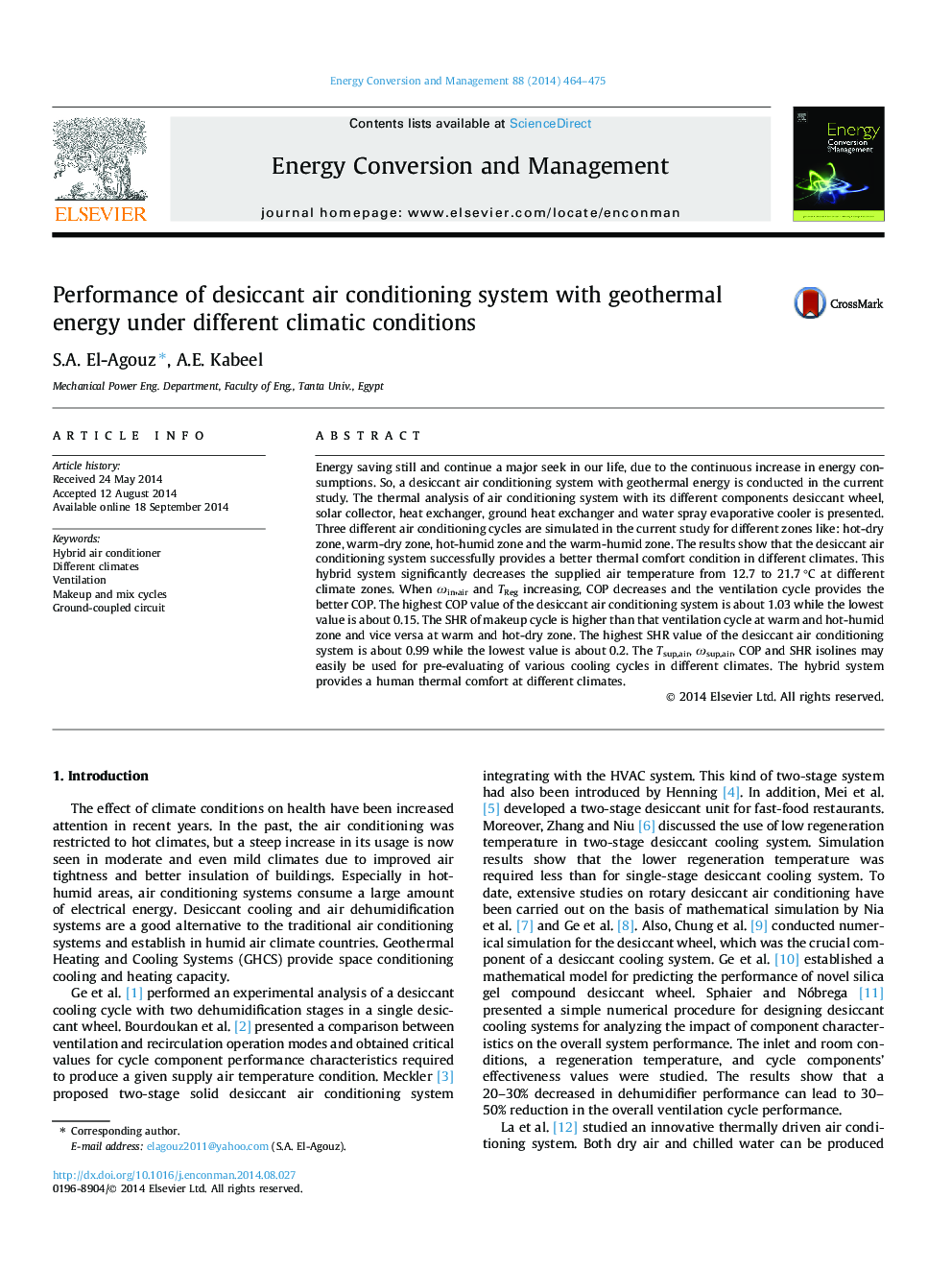| Article ID | Journal | Published Year | Pages | File Type |
|---|---|---|---|---|
| 765629 | Energy Conversion and Management | 2014 | 12 Pages |
•The performance of the hybrid air conditioning system is studied.•The influence of important operating parameters are estimated.•The ventilation, makeup and mix cycles are investigated at different climate.•The highest COP of the hybrid air conditioning system is 1.03.•The hybrid system provides a human thermal comfort at different climates.
Energy saving still and continue a major seek in our life, due to the continuous increase in energy consumptions. So, a desiccant air conditioning system with geothermal energy is conducted in the current study. The thermal analysis of air conditioning system with its different components desiccant wheel, solar collector, heat exchanger, ground heat exchanger and water spray evaporative cooler is presented. Three different air conditioning cycles are simulated in the current study for different zones like: hot-dry zone, warm-dry zone, hot-humid zone and the warm-humid zone. The results show that the desiccant air conditioning system successfully provides a better thermal comfort condition in different climates. This hybrid system significantly decreases the supplied air temperature from 12.7 to 21.7 °C at different climate zones. When ωin,air and TReg increasing, COP decreases and the ventilation cycle provides the better COP. The highest COP value of the desiccant air conditioning system is about 1.03 while the lowest value is about 0.15. The SHR of makeup cycle is higher than that ventilation cycle at warm and hot-humid zone and vice versa at warm and hot-dry zone. The highest SHR value of the desiccant air conditioning system is about 0.99 while the lowest value is about 0.2. The Tsup,air, ωsup,air, COP and SHR isolines may easily be used for pre-evaluating of various cooling cycles in different climates. The hybrid system provides a human thermal comfort at different climates.
